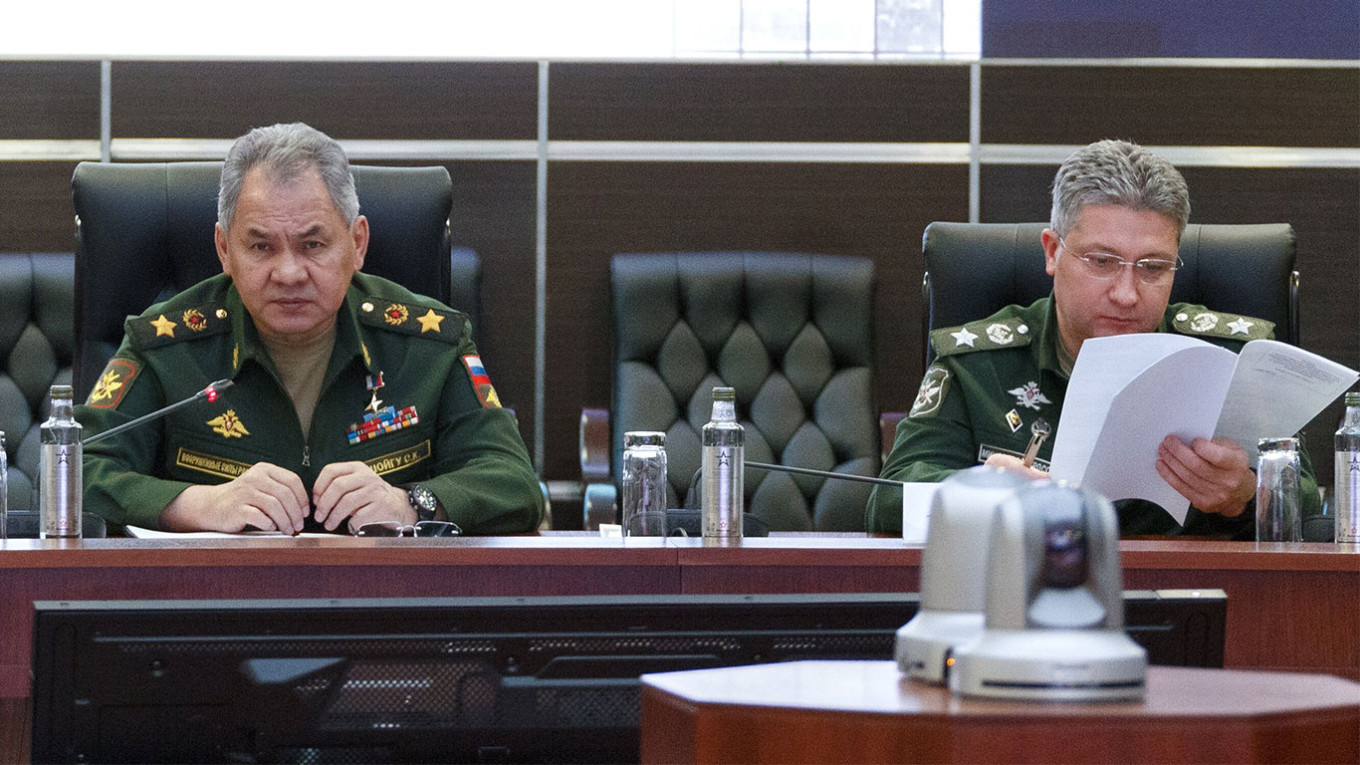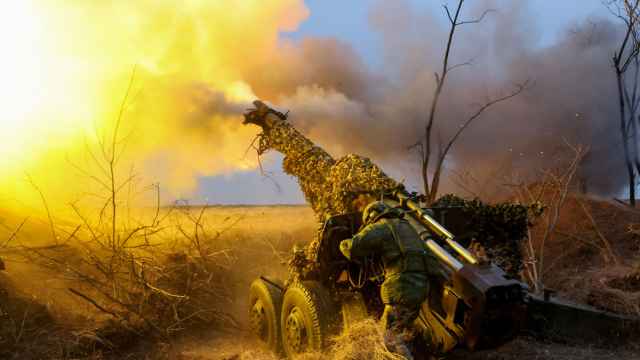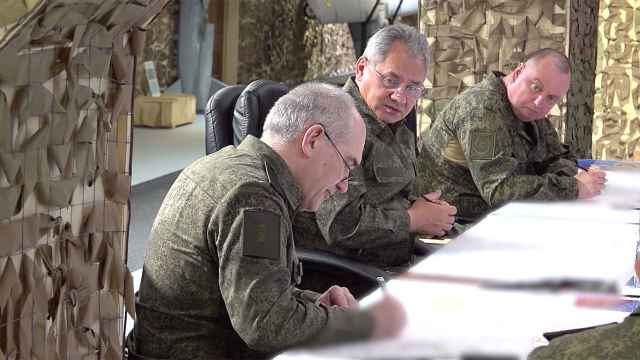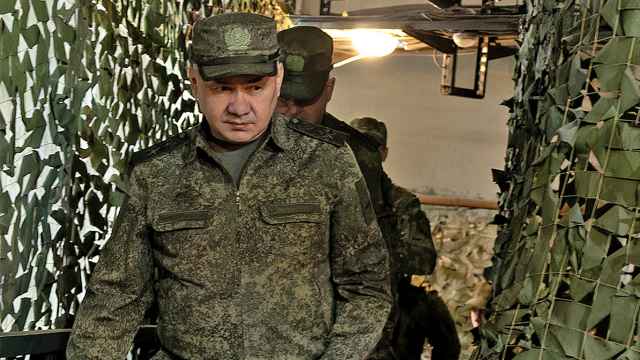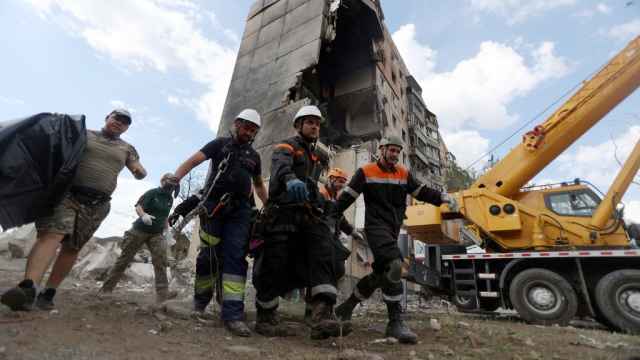The arrest of a senior defense official on bribery suspicions signals Defense Minister Sergei Shoigu’s diminishing status and the rising influence of the security services, two sources in the Russian government and a person close to the Kremlin told The Moscow Times.
All spoke on condition of anonymity due to the sensitivity of the topic.
Shoigu, a longtime ally of President Vladimir Putin, has withstood criticism from pro-war hawks and a mutiny by the Wagner mercenary group during the first two years of the full-scale invasion of Ukraine.
The high-profile arrest of his deputy Timur Ivanov — whose immense wealth and lavish lifestyle were no secret — reflects the struggle for resources and influence within Russia's elite as Putin’s new presidential term begins, The Moscow Times’ sources said.
“First of all, it's market redistribution,” a senior government official told The Moscow Times. “But the public blow to the Shoigu camp is also very serious. Ivanov supervised not just construction, but military contracts — this is the biggest and most delicious.”
Ivanov, who was detained in his office Tuesday night on suspicion of taking a bribe of at least 1 million rubles (about $10,500) and remanded by a Moscow court on Wednesday, is seen as a close ally of Shoigu.
In his role overseeing construction, housing and property management for the Armed Forces, he frequently visited Russian-occupied Ukrainian territories throughout the full-scale invasion.
He made several inspections of the Mariupol apartment complex that Putin visited during his only trip to the occupied city.
A few months before Putin’s visit, Ivanov and Denis Pushilin, the Moscow-installed head of occupied Donetsk, visited the complex’s construction site, heaping praise on the new buildings surrounded by houses that were destroyed during Russia’s siege of the city.
The two blamed the destruction on “neo-Nazis,” a term commonly used by Russian officials to refer to Ukrainian officials and military.
In addition, Ivanov oversaw the construction of a water pipeline from the Don River to the Seversky Donets-Donbas Canal, which Russia used to supply water to occupied Donetsk and Luhansk. He also supervised the construction of 90% of the defenses on the line of contact between the Ukrainian and Russian militaries.
In an interview with the Defense Ministry-run TV channel Zvezda, Ivanov boasted of his ability to quickly construct housing and social and military facilities. The main secret, he said, is the ability to motivate builders.
“Comrades, come on, let’s get together and build better than everyone else! It works,” Ivanov said.
The luxurious lifestyle enjoyed by Ivanov and his family was well-known to Russia’s security services and political elite.
An investigation by late Putin critic Alexei Navalny’s Anti-Corruption Foundation (FBK) revealed the glamorous life of Ivanov, who liked to celebrate his birthday in St. Tropez and party with other high-ranking Russian officials and businessmen.
“There were many real abuses in terms of the management of army property. But it was worth arresting him for them years ago," a source close to the Defense Ministry told The Moscow Times.
That the arrest comes ahead of Putin’s inauguration to a fifth presidential term and subsequent formation of a new government “says more about political reasons and Sergei Shoigu’s weakening position” than it does about Ivanov himself, the source added.
The Moscow Times’ sources agreed that Ivanov’s arrest would not affect the Russian army’s ability to continue its invasion of Ukraine, because he “had nothing to do with military affairs.”
“In all likelihood, this will not prevent Sergei Shoigu from retaining his position in the new government either,” the Russian official said. “But his position will be noticeably weakened.”
“In general, what happened is also in Putin's interests. He never lets any group get too strong. And this will be presented to the public as a fight against corruption,” another Russian official said.
The Federal Security Service (FSB) will likely use the deputy minister’s arrest to collect compromising information on the entire Defense Ministry, including its leader, expert Andrei Soldatov told The Moscow Times.
“Ivanov will now testify against everyone,” Soldatov said. “This is usually a form of control, not repression. This is how the Kremlin regime solves the task of maintaining manageability — as they understand it.”
A Message from The Moscow Times:
Dear readers,
We are facing unprecedented challenges. Russia's Prosecutor General's Office has designated The Moscow Times as an "undesirable" organization, criminalizing our work and putting our staff at risk of prosecution. This follows our earlier unjust labeling as a "foreign agent."
These actions are direct attempts to silence independent journalism in Russia. The authorities claim our work "discredits the decisions of the Russian leadership." We see things differently: we strive to provide accurate, unbiased reporting on Russia.
We, the journalists of The Moscow Times, refuse to be silenced. But to continue our work, we need your help.
Your support, no matter how small, makes a world of difference. If you can, please support us monthly starting from just $2. It's quick to set up, and every contribution makes a significant impact.
By supporting The Moscow Times, you're defending open, independent journalism in the face of repression. Thank you for standing with us.
Remind me later.



